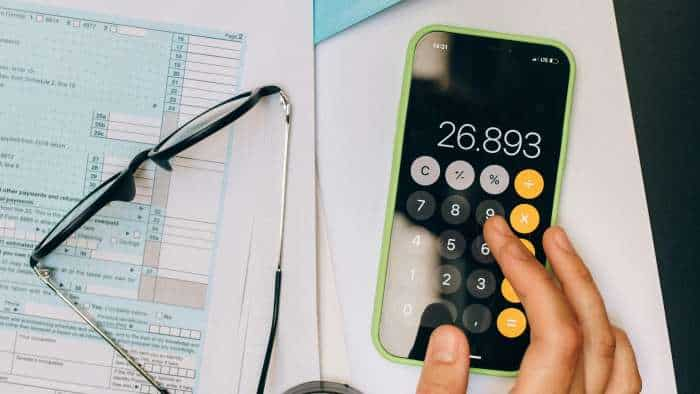SEBI issues fresh guidelines on algorithmic trade
Sebi directed the commodity exchanges to be prepared with all arrangements, procedures and system capability so as to manage the load on their system in such a manner that consistent response time to all members is achieved.

Market watchdog Securities and Exchange Board of India (Sebi), today issued a package of guidelines for algorithmic trading - 'algo' for commodity exchanges.
Under the new norms, any order that is generated using automated execution logic shall be called as algorithmic trading. Usually large institutional investors adapt such logic for trading.
The regulator proposed that, the capacity of trading system of the Exchange should be at least four times the peak order load encountered and the Exchange system should be upgraded on a regular basis.
While approving the algorithmic trading, Sebi asked the stock exchanges to ensure that approval for algorithims should be denied if it is not conducive to efficient price discovery or fair play.
Further it said, immediate or cancel (IOC) orders shall not be allowed by any stock exchanges while using algorithmic trading.
As mini and micro contracts are targeted towards small participants, while allowing algorithmic trading in these contracts, stock exchange are asked to permit algorithmic trading only after taking into account liquidity in the contract in order to eliminate disadvantages on the front of small participants.
Maintaining efficieny for market participants, Sebi has not permitted stock exchange to host algorithmic trading via CTCL terminals. The regulator said," Co-Location, Co–Hosting or any other facility or arrangement which puts some members in disadvantageous position vis-à-vis other members shall not be allowed."
To ensure fair usage of trading platform by all members, Sebi asked exchanges to put in economic disincentives for daily algorithmic order–to–trade ratio.
In case the ratio is 500 or more than 500 during a trading day, the concerned member shall not be permitted to place any order for the first 15 minutes on the next trading day (in the continuous trading session) as a cooling off action . However, the trading member shall be permitted to enter transaction in risk reducing mode during such a cooling off period, Sebi explained.
For the purpose of calculation of daily Order-to-trade ratio, all algorithmic orders, i.e. order entry, order modifications and order cancellation shall be considered.
The algorithmic orders entered and /or modified within 1 % of the last traded price (LTP) of the respective contract shall not be included in the calculation of the Order –to-Trade ratio for the purpose of arriving at the penalty for higher order – to – trade ratio.
In regards to rule violation, Sebi said," The penalty structure will be applicable for only those members who have placed 10,000 orders or more in a day."
Also, the Exchanges shall place a limit on numbers of orders per second from a particular CTCL ID/ATS User–ID not exceeding twenty orders per second.
Commodity exchanges may seek details of algorithmic strategies to be used by the members for purposes of inquiry, surveillance, investigation etc.
Sebi directed the commodity exchanges to be prepared with all arrangements, procedures and system capability so as to manage the load on their system in such a manner that consistent response time to all members is achieved.
Get Latest Business News, Stock Market Updates and Videos; Check your tax outgo through Income Tax Calculator and save money through our Personal Finance coverage. Check Business Breaking News Live on Zee Business Twitter and Facebook. Subscribe on YouTube.
RECOMMENDED STORIES

Rs 5,000 SIP for 40 years vs Rs 50,000 SIP for 20 years: Which can create higher corpus? See calculations to know it

Power of Compounding: In how many years, investors can achieve Rs 6.5 cr corpus with monthly salaries of Rs 20,000, Rs 25,000, and Rs 30,000?

PPF For Regular Income: How you can get Rs 78,000 a month tax-free income through Public Provident Fund investment?

18x15x12 SIP Formula: In how many years, Rs 15,000 monthly investment can grow to Rs 1,14,00,000 corpus; know calculations
10:40 PM IST









 Not obligatory for platforms to be registered with SEBI; board clarifies on specified digital platforms
Not obligatory for platforms to be registered with SEBI; board clarifies on specified digital platforms Emerging India Focus Funds pays Rs 64 lakh to settle FPIs violation case with Sebi
Emerging India Focus Funds pays Rs 64 lakh to settle FPIs violation case with Sebi  Sebi mulls allowing only electronic mode for payment of dividend, interest
Sebi mulls allowing only electronic mode for payment of dividend, interest  Sebi bars Axis Capital from taking new debt merchant banking assignments
Sebi bars Axis Capital from taking new debt merchant banking assignments Wockhardt denies allegations of rent payment by Carol Info, its connection with SEBI orders
Wockhardt denies allegations of rent payment by Carol Info, its connection with SEBI orders